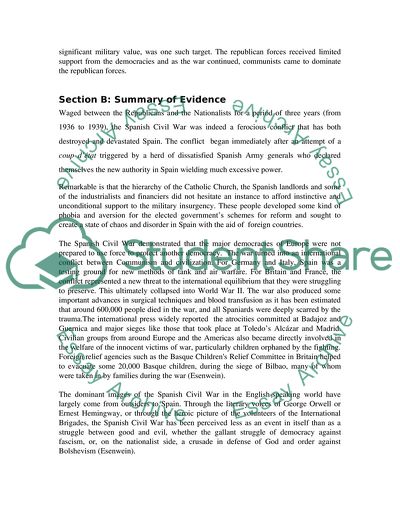Cite this document
(“National Victory in the Spanish Civil War Essay”, n.d.)
Retrieved from https://studentshare.org/history/1560733-how-far-was-foreign-intervention-responsible-for-the-national-victory-in-the-spanish-civil-war
Retrieved from https://studentshare.org/history/1560733-how-far-was-foreign-intervention-responsible-for-the-national-victory-in-the-spanish-civil-war
(National Victory in the Spanish Civil War Essay)
https://studentshare.org/history/1560733-how-far-was-foreign-intervention-responsible-for-the-national-victory-in-the-spanish-civil-war.
https://studentshare.org/history/1560733-how-far-was-foreign-intervention-responsible-for-the-national-victory-in-the-spanish-civil-war.
“National Victory in the Spanish Civil War Essay”, n.d. https://studentshare.org/history/1560733-how-far-was-foreign-intervention-responsible-for-the-national-victory-in-the-spanish-civil-war.


